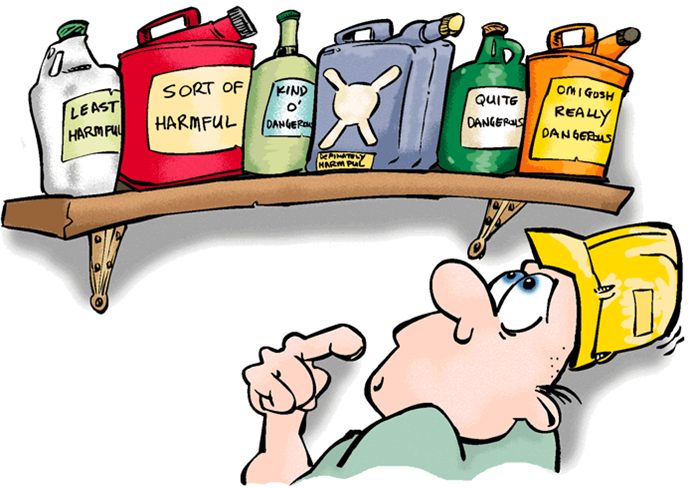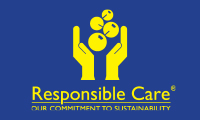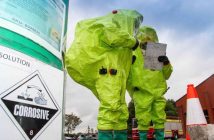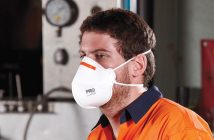The advent of revised Hazardous Substances regulations in December passed largely unnoticed. Despite constant reference to “new regulations” compliance obligations continue largely unchanged.

Hundreds of business operators turned out for a free Responsible Care NZ workshop, eager for accurate and practical advice, indicating an unsatisfied demand for assistance and education.
Attendance highlighted the need to provide particularly harassed, time-poor SMEs unable to access, correctly interpret and successfully implement complex regulations, with clear and concise compliance advice.
In response to pleas of “just tell me what I have to do and how to do it”, inviting enquirers to “read the regulations” is falling well short of the industry educational expectations arising from WorkSafe NZ’s Statement of Intent 2016-2020.
While 130,000 businesses are reportedly captured by the Hazardous Substances and Major Hazard Facilities regulations, the official mantra of “600-900 persons seriously harmed each year by unwanted exposure to chemicals in their workplace” presumably applies to all 530,000 workplaces?
If so, how is this major danger to be comprehensively addressed?
Regrettably, some ‘improvements’ in the HSWA Hazardous Substances regulations intended to “simplify compliance” will have a detrimental effect on workplace chemical safety.
More workplace inspectors are promised but enabling employers and particularly SME operators to successfully progress beyond basic compliance to site-specific chemical safety issues remains the challenge.
Downgrading the flawed but effective HSNO Certified Handler requirement undermines an invaluable capability, thus depriving businesses, particularly SMEs, of an immediate source of workplace chemical safety and compliance advice, a safe chemical handling capability and emergency response knowledge – critical when a chemical incident occurs.
Instead, PCBUs and struggling SMEs must now devise their own solutions to ensure employees are competent to safely handle the chemicals they work with – a major problem for under-resourced SMEs.
Importantly, a workplace inspector and compliance certifier will find verifying an employee’s chemical handling expertise more difficult and time consuming than simply inspecting a current Certified Handler certificate.
The controversial Major Hazard Facilities regulations at last require chemical plants to determine if local Fire and Emergency NZ (FENZ) detachments have the required capability to deal effectively with a major site or transport chemical incident.
So where to from here?
To help solve the in-house chemical compliance dilemma, Responsible Care NZ delivers cost-effective, specialist, Certified Handler standard training, complete with a certificate.
Internationally, chemical industry leaders are moving away from relying on lagging indicators of safety performance in favour of identifying safer work practices and workplaces, by responding to workers’ suggestions about improvements.
WorkSafe NZ warns against business operators falling victim to uninformed and always expensive ‘consultants’. Chemical suppliers continue to help customers achieve workplace chemical safety aspirations through product stewardship initiatives
Sought after Responsible Care CNZ site compliance assessments are non-threatening, effectively capturing chemical safety performance in a variety of workplaces.
A proven strategy is government agencies collaborating with proactive industry associations to best achieve workplace safety aspirations.
SMEs rarely join associations, however they all obtain their chemical requirements from suppliers, benefiting from product stewardship advice and cost-effective industry compliance initiatives.
Responsible Care NZ extols less regulation in favour of enabling business operators to be increasingly self-sufficient, using cost-effective products and services such as site compliance assessments and specialist training.
Our focus is keeping people safe around the chemicals we encounter every day, by once again adding value to businesses.
Proven, collaborative and cost-effective initiatives to raise awareness and improve workplace chemical safety performance include:
- Joint agency and industry-focused local compliance workshops at times convenient to SME operators.
- WorkSafe NZ inspectors distributing free copies of user-friendly ‘compliance tools’ such as the Storage of Hazardous Substances HSNO Approved Code of Practice and posters explaining GHS pictogrammes.
- Supporting industry initiatives such as product stewardship.
- Referencing industry ‘compliance tools’.
- Upskilling workplace inspectors in chemical safety.
- Encouraging ‘no blame’ reporting of incidents.
- Acknowledging successful, proactive industry compliance initiatives.
- Restoring the status of Approved Industry Codes of Practice.
A refreshed and energized government strategy for improving workplace chemical safety is both welcome and essential if we are to significantly improve sub-standard performance and learn from our successes and shortfalls.
Perhaps replacing the export of our plastic waste by revisiting a state of the art high temperature incinerator to also bolster our energy generation? Significant financial rewards for innovative reduction of waste?
The chemical industry continues to lead by example, helping to ensure essential chemicals encountered at work and at home are safely managed, thereby safeguarding employees, communities and our beleaguered environment.
Expanding mutually beneficial government- industry partnerships helping business operators ‘do the right thing’ with minimal fuss and expense should be ‘a no brainer’.
Conscientious business operators can add value by sourcing accurate, cost-effective chemical safety assistance and compliance tools from their suppliers and our industry partners.
Chemical suppliers are ‘Impatient optimists’. We know we can all collectively do better through continuous improvement and we are committed to helping you become an exemplar for workplace chemical safety, this year and every year.
How about it?
Responsible Care is a global, voluntary initiative developed autonomously by the chemical industry for the chemical industry. 04 499 4311 www.responsiblecare.com




